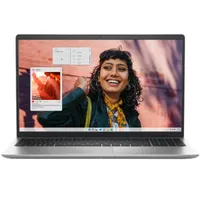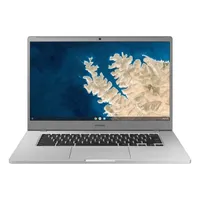Best budget laptops for music production 2025: Affordable laptops for making music
I've got the latest laptops on test that will not only enable you to make music anywhere, but do it without spending a fortune – our top picks start at just $/£300
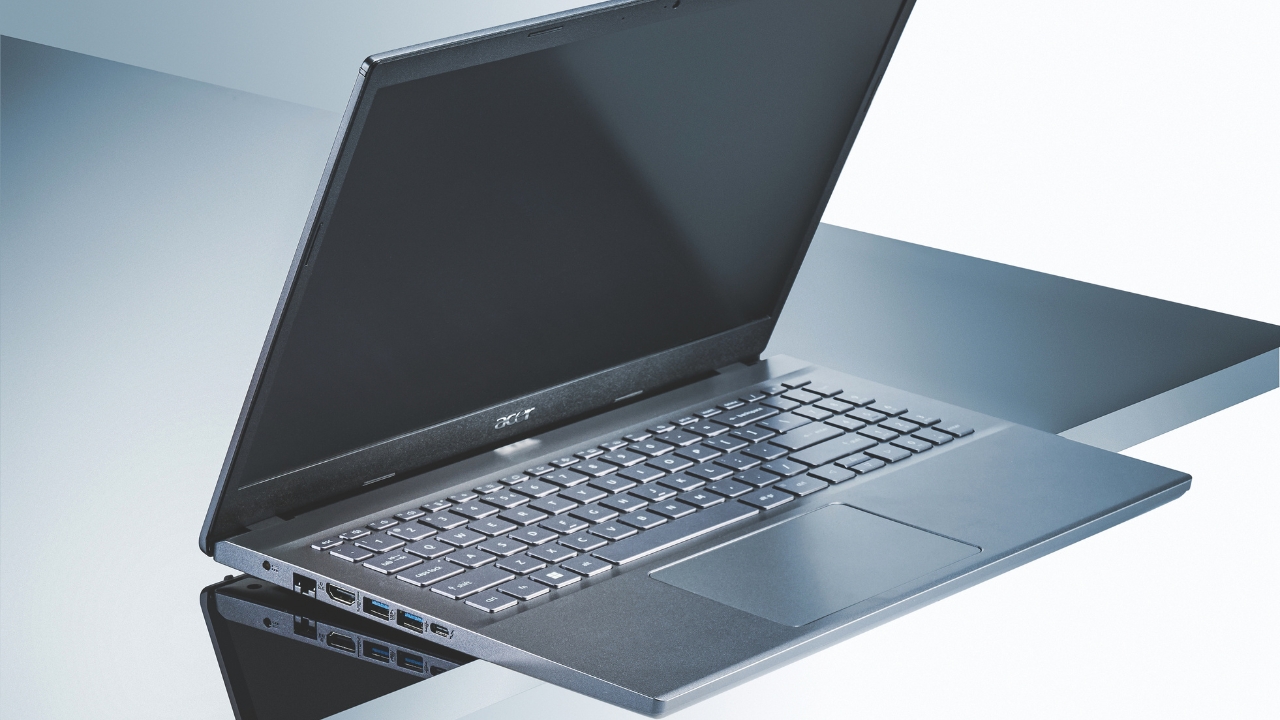
Pretty much any modern laptop can run a DAW, such is the easy availability of processing might nowadays. The problem you'll find is when you start loading plugins and virtual instruments into your session, these are the true CPU hogs that will have your machine moving at a snail's pace. My selection of the best budget laptops for music production will get you making music quicker, and all without breaking the bank.
To make music you'll need a good processor and RAM to begin. Something like an Intel i5 or Ryzen will have plenty of power to handle the majority of audio production tasks. Macs aren't exactly budget, but if you've got your heart set on one an M1 processor will be more than suitable for making music. In terms of RAM, if you can get to 16GB, this is the minimum I'd recommend for production.
If you can stretch to one, an SSD (Solid State Drive) will help speed up production tasks like loading project files and importing samples. GPUs (graphics processing units) are less necessary for production, but they can be helpful if you need a machine capable of editing promo videos, or if you want to carry out AI-powered tasks like stem separation.
There are a lot of great options available at the moment, but if you can stretch to it, I still think the Apple MacBook Air M1 is the best budget machine for music making right now. I do appreciate these are at the very limit of budget though, so going for a Windows laptop can save you a decent amount of cash. I recommend you take a look at the Acer Aspire 5 if you want a great computer for creating music without spending loads.
If you're new to producing music via a laptop, then you'll want to check out my how to choose section which breaks down what you need to look for in more detail. I've put together a comprehensive Q&A, utilizing 20 years of music-making experience and a stint in a computer repairs workshop. If you're confused by any of the terms used in regards to laptops, check out our glossary of key terms to level up your lingo.
My top picks
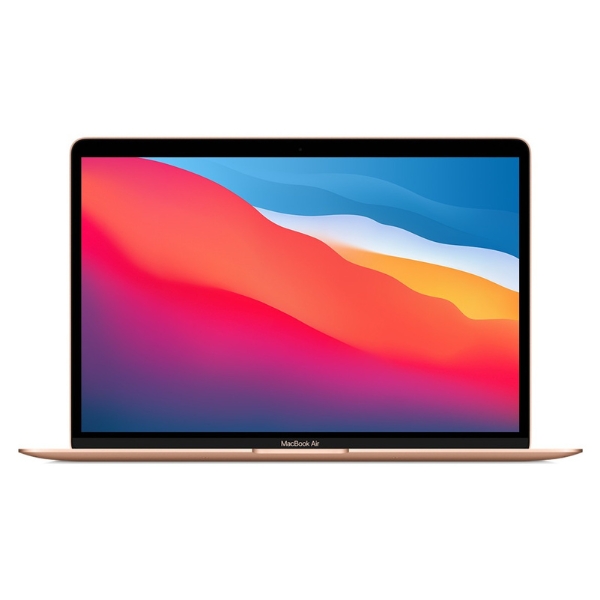
Okay, we're stretching the definition of budget here, but if you have to have a MacBook for your production tasks, the Apple MacBook Air M1 is the cheapest it gets. You can find them below the $1,000 mark, but you'll have to shop around.
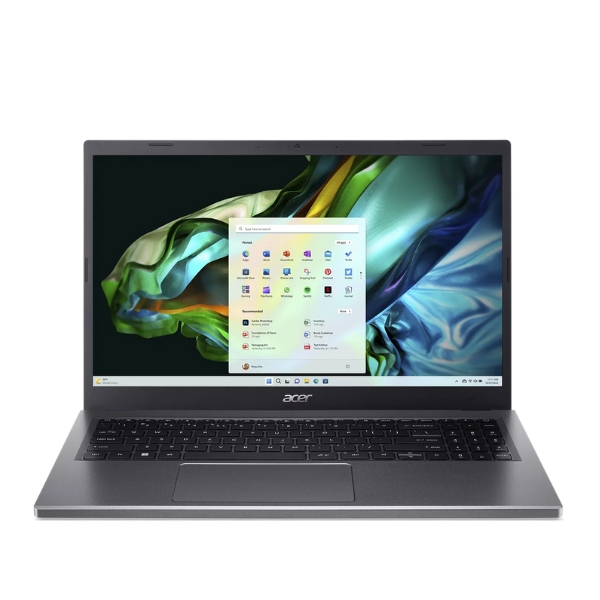
The Acer Aspire has been our top-budget laptop choice for a while now and still doesn't disappoint. It gives you a lot of CPU power for the money and balances that out with a nice amount of storage and RAM to make it a great budget all-rounder.
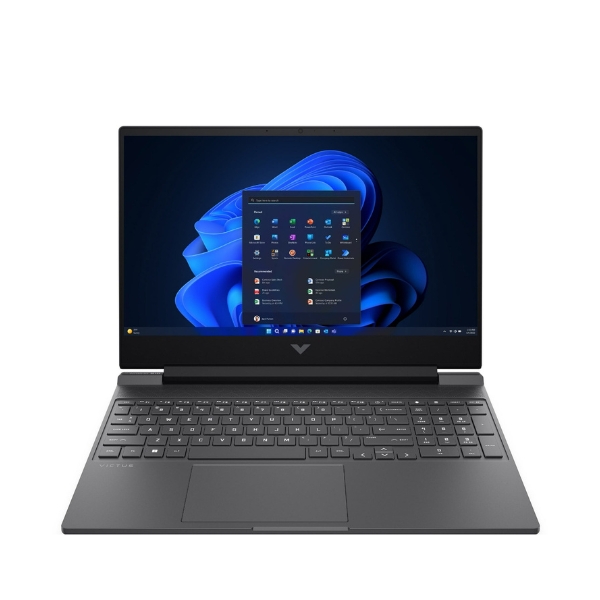
Gaming-spec laptops are a great choice for musicians because they pack a lot of power into a compact package. With the rise of AI for stem separation that uses a GPU, having a good one in a laptop makes this a brilliant option for more advanced tasks.
Best MacBook
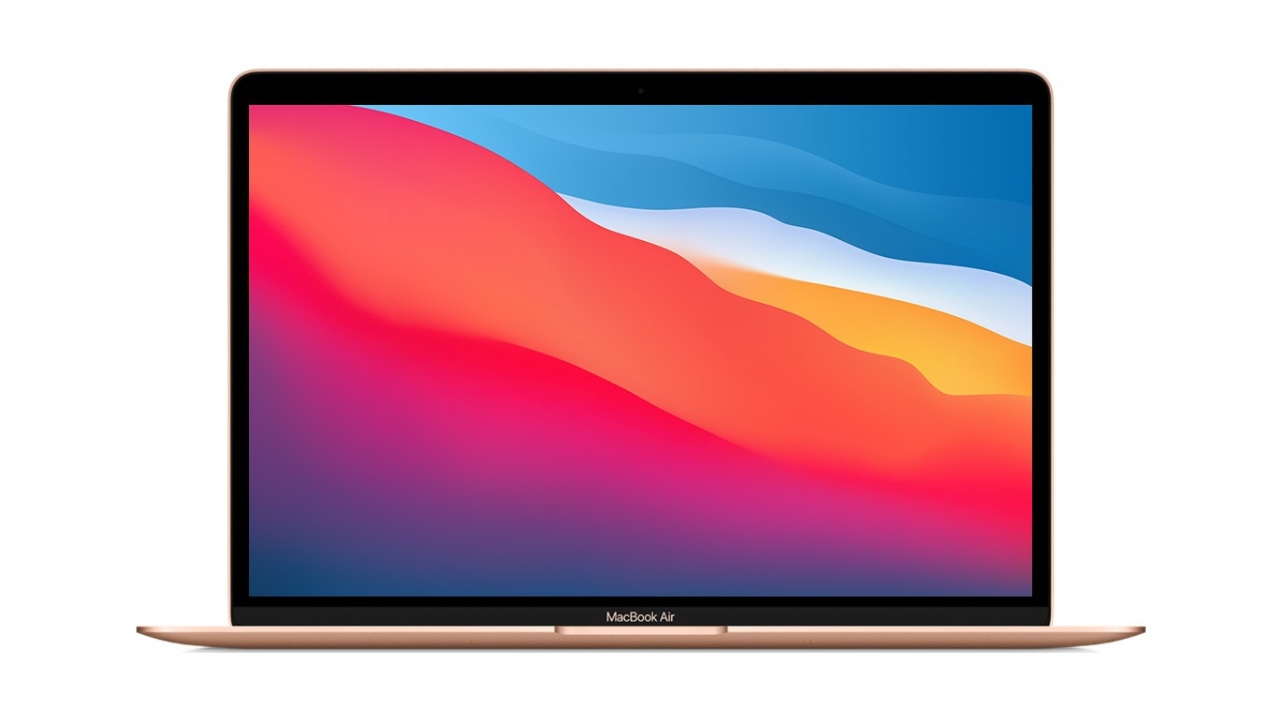
Specifications
Reasons to buy
Reasons to avoid
✅ Buy if you’ve got a little more budget: It’s the most expensive option here, but it’s also the best performing laptop under $/£1,000, so if you have the budget it’s a no-brainer.
❌ Avoid if you’re on a tight budget: Obviously, if you’re on a super tight budget then this laptop will be too expensive.
Overview: Whilst it's one of the more expensive options on this list, there's no doubt that a MacBook is the preferred machine for any music maker. Representing the cheapest Apple laptop you can buy at the moment, the MacBook Air M1 13-inch is as budget-friendly as Apple gets.
Build quality: The all-aluminium enclosure of Apple laptops makes it an incredibly robust piece of equipment. It’s lightweight, so easy enough to chuck into a backpack and take on the go with you.
Usability: The M1 chip is still plenty powerful enough for production tasks whether you're using loads of plugins and VSTs or recording raw audio via an audio interface. With more and more software manufacturers offering native M1 support now, you don't have to worry about the compatibility of your plugins either.
Where it does let you down a little bit is in connectivity. With just two Thunderbolt/USB-C ports, it's pretty much a given you'll need an additional hub if you want to make music with it. We can look past that though thanks to its incredible performance.

“Put simply, the M1 MacBook Air gives you an awful lot of what you do want and not a lot that you don’t (we’re looking at you Touch Bar), and if you ever do decide that you need something more powerful, the fact that Apple’s laptops hold their value will stand you in good stead when you come to sell it. Yes, there are some drawbacks - only two Thunderbolt/USB ports and a design that’s likely to be superseded pretty soon - but the M1 MacBook Air remains a bit of a bargain.”
Read more: Apple MacBook Air M1 13 review
Best Windows
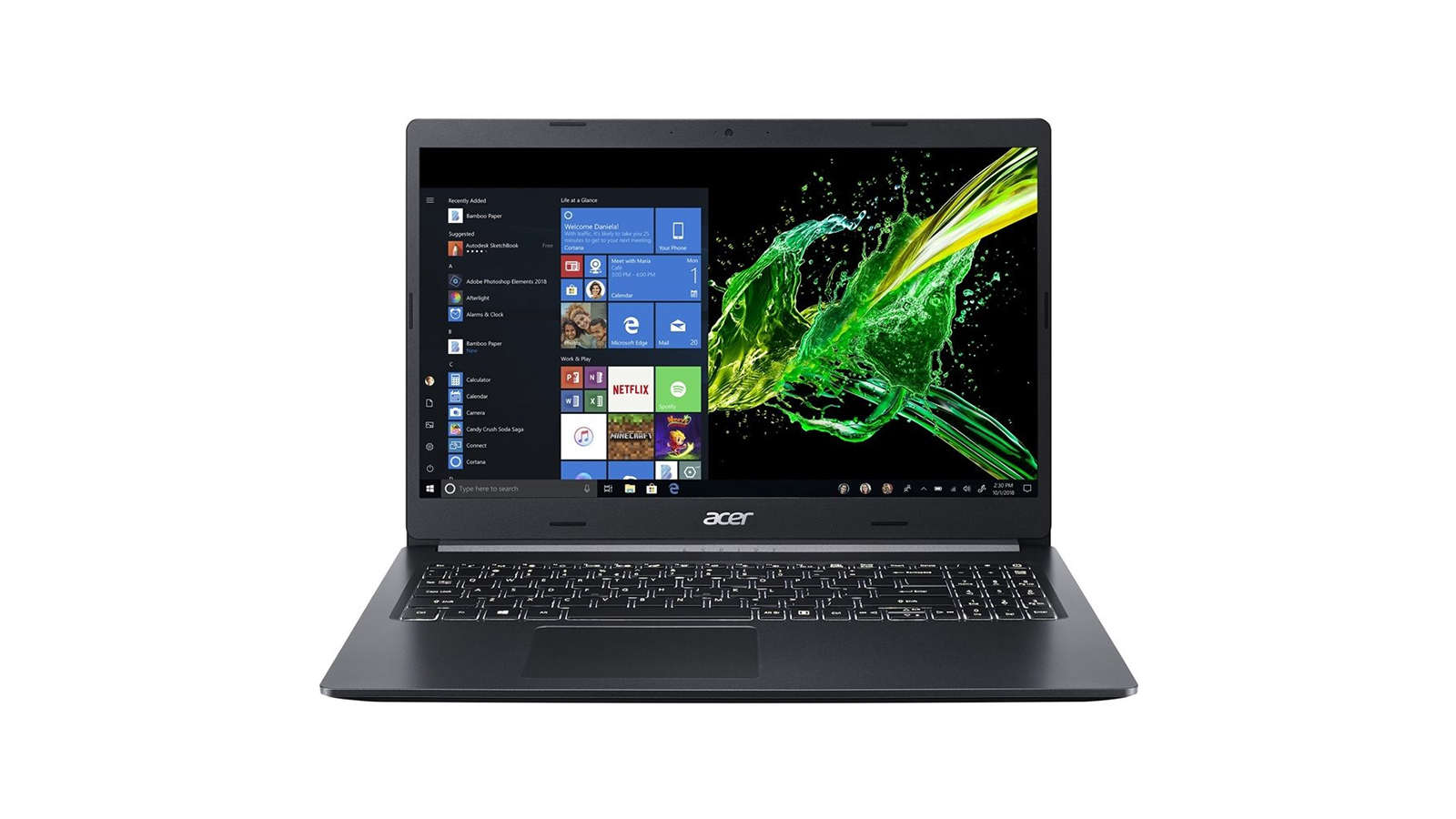
2. Acer Aspire 5 A515
Our expert review:
Specifications
Reasons to buy
Reasons to avoid
✅ Buy if you want the best budget Windows laptop for production: Spec’d with an i5 and 8GB of RAM, this is a great option for less than $/£500.
❌ Avoid if you use loads of virtual instruments: You’ll need to spend more for extra RAM which will be useful for those using lots of VSTs.
Overview: Taking into account the holy trinity of music production laptop specs – CPU, RAM, and storage – the Acer Aspire 5 is a great choice for the vast majority of people on a budget. The Intel i5 processor will chug along nicely, while 8GB of RAM means you can be reasonably expansive with your arrangements.
Build quality: It's lightweight, making it great as a travel rig. We also found the build to be sturdy, so you won't worry about chucking it in a backpack for some remote mixing or using it in a busy live room.
Usability: The full-size keyboard is handy for those Pro Tools shortcuts that use numerical keys. Adding in a USB-C port means you can take advantage of faster data transfer speeds, although its 512GB SSD is a real bonus at this price point. You’ll struggle to find a better Windows machine for under $500/£500.
Best gaming-spec
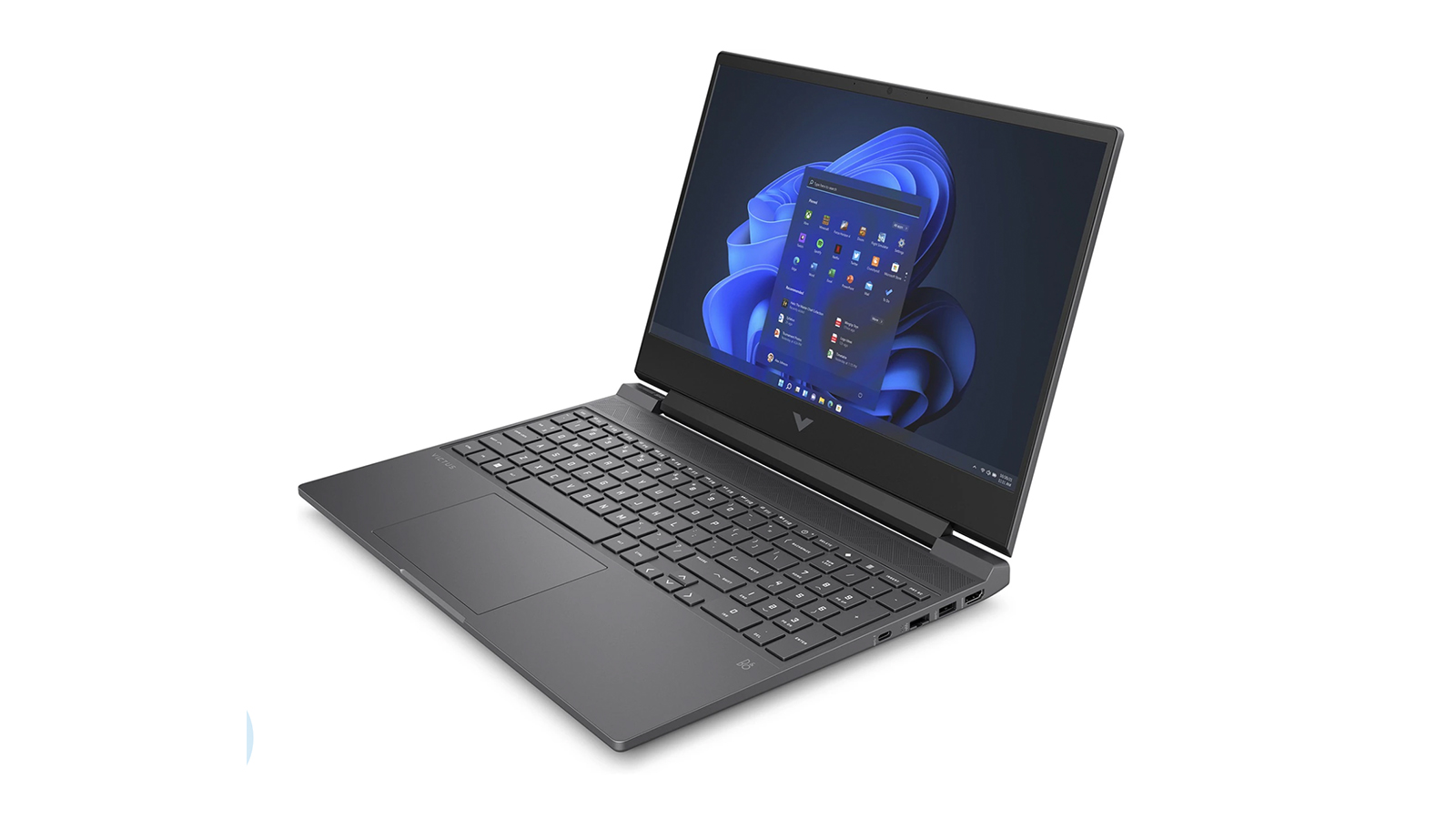
3. HP Victus 15
Our expert review:
Specifications
Reasons to buy
Reasons to avoid
✅ Buy if you want to game alongside your music-making: Gaming machines are inherently powerful, which makes this a great option if you need a machine that can handle games and run your DAW.
❌ Avoid if you’re not a gamer: If you’re not interested in playing games then you’d be better off spending that extra budget on more CPU/RAM or peripherals like an external SSD.
Overview: Gaming requires a lot of grunt, which is part of what makes gaming laptops viable for music production. The HP Victus 15 is a great choice for music-making and a bonus for us - doesn't feature the garish styling of many gaming machines.
Build quality: I really love the look of the Victus laptops that do away with excessive RGB lighting that plagues gaming laptops. It’s not as durable-feeling as some of the other laptops here though with an all plastic enclosure. The hinge design also leaves the screen feeling a little wobbly, so while I’d be happy using it as a home studio hub, I might think twice about taking it on tour with me.
Usability: It's sleek and stylish, with plenty of power under the hood for CPU-intensive tasks. The addition of a GPU means you can do some light video editing too, which will be useful for all those promo videos you've got planned to support your album release.
There are quite a few machines in the Victus range though, and with varying specs. Make sure you get one kitted out with the all-important extra ports for music making, but otherwise, you won't get this much power for your dollar in many other laptops.
Best 2-in-1
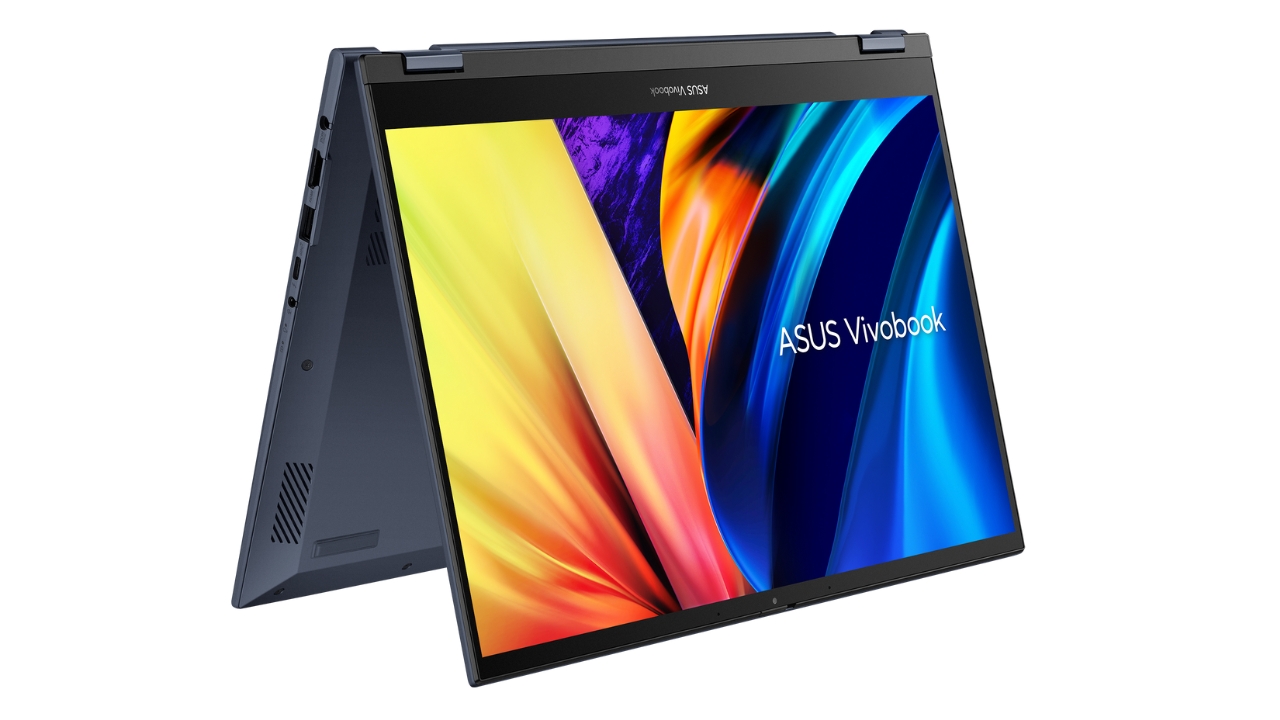
4. ASUS VivoBook Flip
Our expert review:
Specifications
Reasons to buy
Reasons to avoid
✅ Buy if you want a laptop that can moonlight as a tablet: If you like to use your laptop as an additional controller on a bigger system or need something with extra versatility, this is a great pick.
❌ Avoid if you don’t need a touch screen: Your money would be better spent on better specs or more SSD space if you don’t need a laptop that can act as a tablet.
Overview: ASUS has plenty to offer in the mid-range market, but we’ve opted for the ASUS VivoBook Flip. While it might look a bit gimmicky, essentially what we’ve got is a nicely specced convertible laptop/tablet, which runs full Windows 11 and has a decent baseline spec for music production.
Build quality: The build quality of the Vivobook is top-notch, and I particularly like the robust hinge, which is important in something that’s going to be stressed regularly. I’d have no qualms about taking this laptop out on the road with me
Usability: The ability to split it down to a tablet means it'll be great for producers moonlighting as live sound engineers, allowing you to use it tablet-style to hear the sound stage front. Using a touchscreen to control a DAW like Ableton does come with its benefits - and occasional drawbacks - but for the budget-conscious producer who likes to leave the studio every now and again, this is a solid, versatile entry-level option.
Best portable
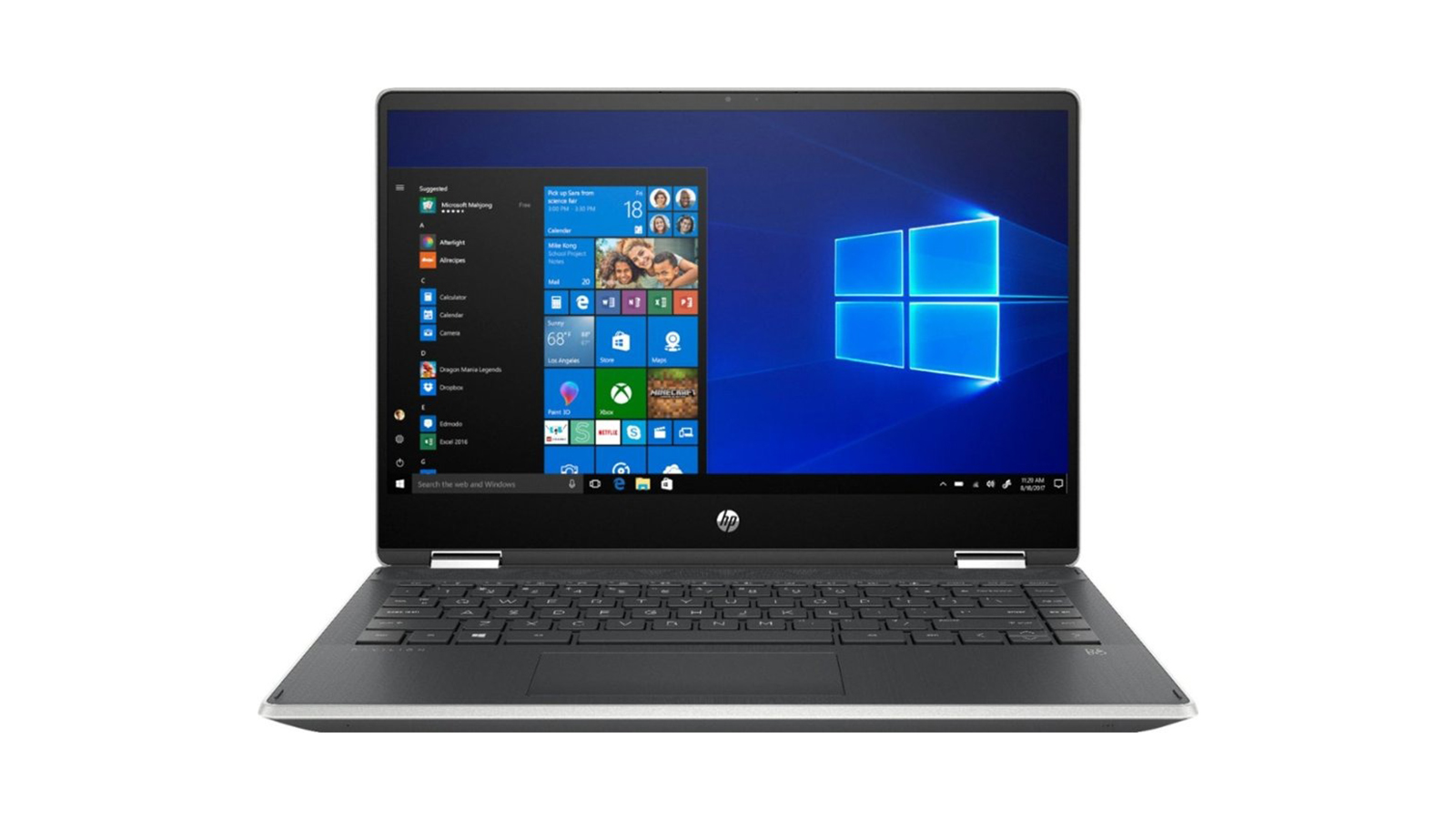
5. HP Pavilion x360
Our expert review:
Specifications
Reasons to buy
Reasons to avoid
✅ Buy if you need something portable: The compact size and light weight of this HP Pavilion make it a great option for music-making on the go.
❌ Avoid if you need long battery life: I found this laptop didn’t perform too well in the battery life tests, so avoid if you need something that can run off charge for a while.
Overview: As one of the bigger names in computing, it’s reasonable to expect HP would have a decent offer in the low-to-mid range. The HP Pavilion x360 fits the bill, serving up a nice set of base specs that would suit anyone learning their craft.
Build quality: The non-music headline comes in the shape of the touchscreen; fold the Pavilion back on itself and it becomes a tablet device. That 360-degree hinge could prove useful for sessions where you're collaborating with people or just short on space.
Usability: Realistically, other than as a party piece, the touchscreen doesn’t immediately jump out as being useful to a producer – your mileage may vary – but if the device is going to serve other purposes than music creation then the Pavilion x360 is a sound choice. Its tiny footprint is the real benefit, letting you quickly and easily chuck it in a backpack and take to a session.
Best CPU power
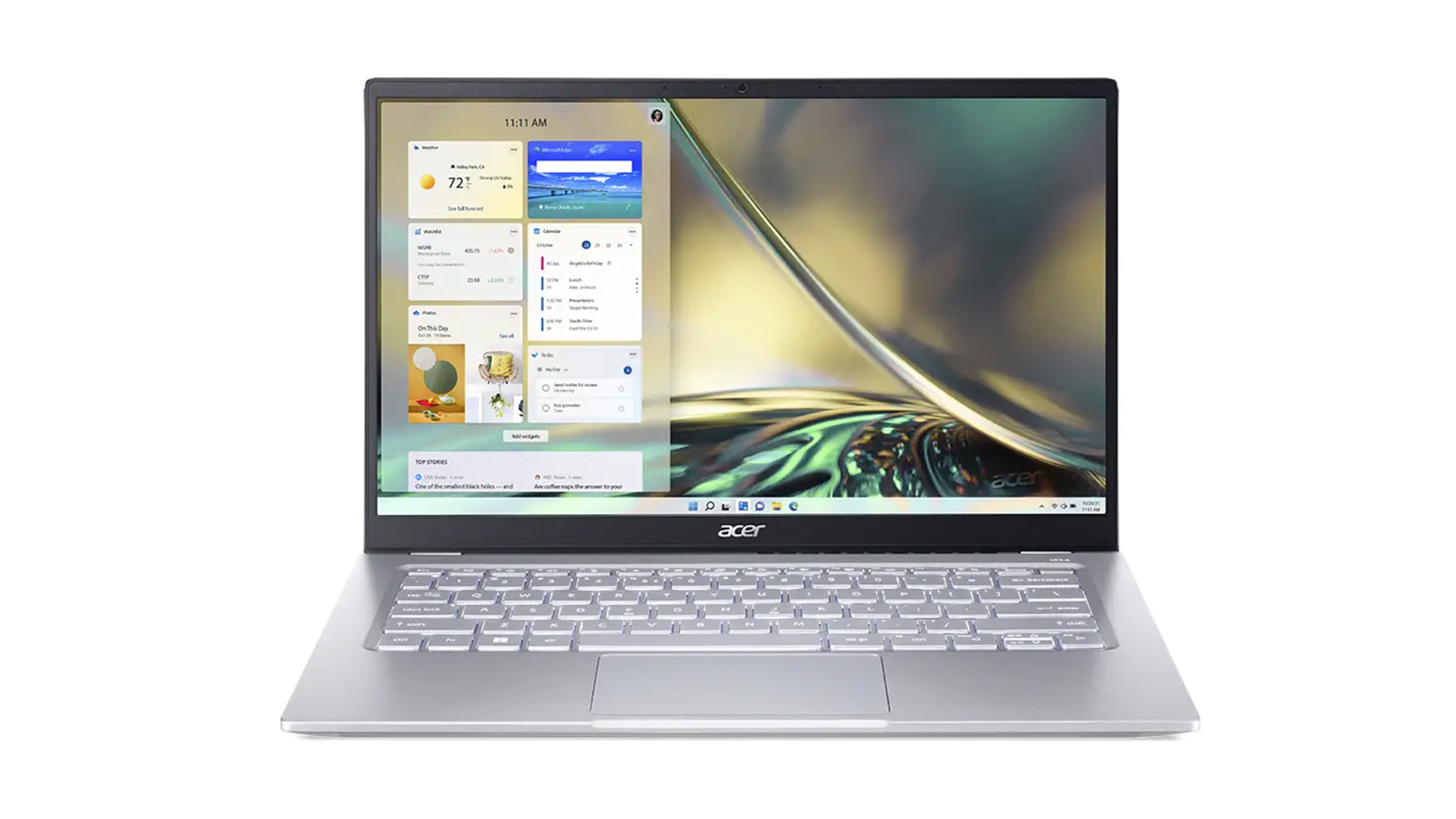
6. Acer Swift 3
Our expert review:
Specifications
Reasons to buy
Reasons to avoid
✅ Buy if you value processor speed over everything else: Able to be spec’d to an i7 at a reasonable price point, this is the laptop to go for if you need processing power.
❌ Avoid if you need plenty of battery life: Tests averaged out around 6 hours even with light use, so if you need to work off-charge then look elsewhere.
Overview: Our sister website TechRadar describes this as 'the best budget laptop in the world'. And while we have chosen the Acer Aspire 5 A515 for the top spot over this one, the Swift 3 does still deliver a lot for your cash.
Build quality: The Swift 3 has an aluminium and magnesium-aluminium alloy case, and is not the most exciting colour. But there are some other under-the-hood upgrades, including phenomenal battery life, which is great for producers who aren't tethered to their studio desk.
Overview: You get a great set of specs including one of the best processors in this round-up, plus decent memory and storage. If you're after a dependable laptop that can handle day-to-day production tasks (without feeling too cheap), then the Acer Swift 3 really does measure up as one of the best cheap laptops you can buy.
Spec comparison
If you want a quick and easy way to compare the different laptops in this guide, my spec comparison table puts together all the key specifications so you can see them side-by-side.
Model | CPU | RAM | Graphics | Storage | OS | Display | USB ports |
|---|---|---|---|---|---|---|---|
Apple MacBook Air M1 | Apple M1 | 8GB | Apple M1 | 256GB SSD | MacOS | 13.3" | 2 |
Acer Aspire A515 | Intel Core i3-i5 | 4GB-16GB | Integrated | 128GB-512GB SSD | Windows | 15.6" | 3 |
HP Victus 15 | Intel Core i7 or Ryzen 7 | Up to 16GB | Nvidia Geforce RTX 3050Ti | Up to 1TB SSD | Windows | 15.6" | 3 |
Asus Vivobook Flip | Ryzen 5 | 4GB-32GB | Integrated | 256GB-1TB SSD | Windows | 14" | 2 |
HP Pavilion x360 | Intel Core i7 | 16GB | Integrated | 256GB SSD | Windows | 14" | 3 |
Acer Swift 3 | Up to Intel Core i7 | 16GB | Integrated | 256GB SSD | Windows | 14" | 3 |
Also consider
Dell Insprion 15
Intel Core i5 | 8GB RAM | 512GB SSD
The Dell Inspiron range has been the first laptop many bedroom producers use to start them on their recording journey. Packing in some respectable spec, and the peace of mind that comes from using a trusted brand like Dell, the Inspiron range is definitely worth a look.
★★★★
Samsung Chromebook 4+
Intel Celeron | 6GB RAM | 64GB Flash storage
The Samsung 4+ Chromebook won’t run regular digital audio workstations (DAWs) like Ableton Live, Cubase or Pro Tools. With Chrome OS, you are essentially limited to apps that can be found in Google’s Play Store, or run via a browser, which will be best suited for younger producers taking their first steps in the music production space.
★★★
How to choose
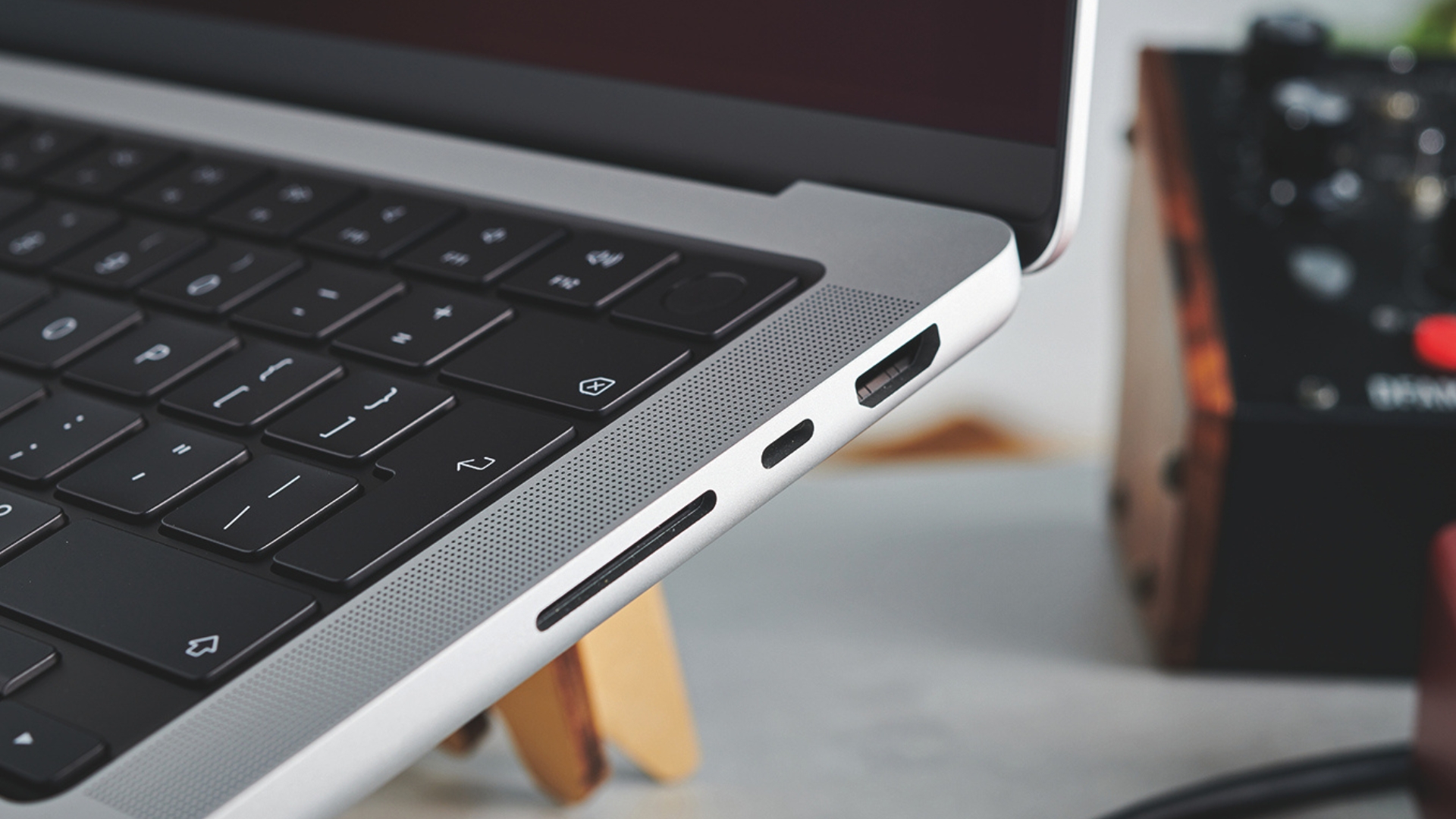
If you’re buying a laptop for music production, then there are a few more considerations you’ll need to consider versus someone with a larger budget. As a studio engineer who previously worked in a computer repairs shop, here’s what I think you should look for when you’re buying a new laptop.
1. CPU
MusicRadar's got your back
One of the most important components of your laptop is the CPU, so if you want to make the most out of your music making then getting as powerful a CPU as possible is a must. Look for a recent Intel i5 or i7, Ryzen 5 or 7, or an Apple M1 chip if your budget allows.
2. RAM
While 8GB will allow for a very basic project, realistically you’re going to need 16GB of RAM as a minimum. The more RAM you can afford, the more plugins you’ll be able to use at once and the better the overall performance of the laptop will be.
3. Storage
Again, you should try and max out the amount of storage you can get internally in your laptop, but you should also budget for an external hard drive to store your sample libraries and project files on. Ideally, you’ll want to leave your internal hard drive as free as possible to handle core tasks like running your DAW and plugins.
4. Ports & connectivity
Make sure you check how many and which type of ports your laptop has before you buy. There’s nothing worse than buying a laptop and realising you then need to spend money on an additional USB hub in order to get your setup running.
Q&A
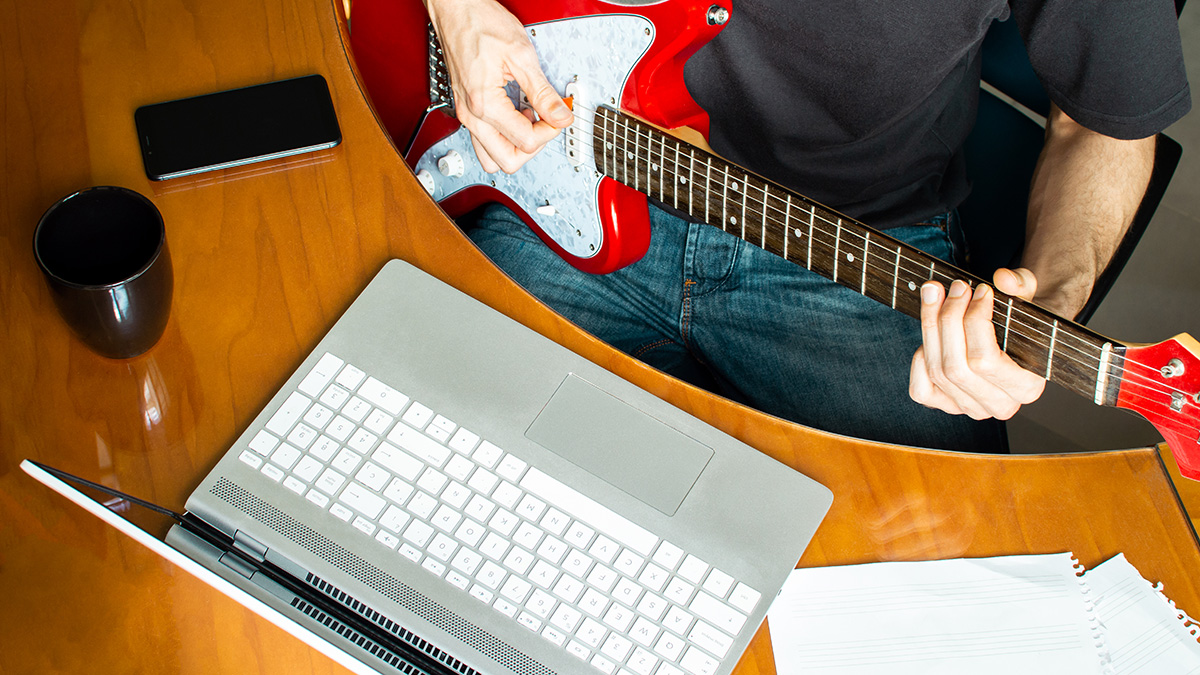
Will a cheap laptop have enough power to run my DAW and plugins?
Yes it will, but you may be limited to a certain number of tracks. This will all depend on the CPU you go for and the amount of RAM you have, so you may need to plan your session around the capabilities of your laptop by bouncing virtual instruments and effects to track to save on processing power.
Should I go for a Windows or an Apple laptop?
If you’re on a super tight budget, then a Windows machine makes more sense here as Apple machines are always more expensive. If you have a little more cash to spend, then picking up an M1 MacBook, as it delivers superb performance for the money.
How much RAM do I need?
You can get away with 8GB of RAM if you’re clever about how you utilise your plugins and typically have small sessions, but if your budget allows it, more is always better. 16GB is a nice amount on a budget that won’t have you pushing the limits of your machine as often.
Should I choose an SSD or an HDD?
You should go for an SSD wherever you can. SSD performance is vastly superior to HDDs, and they’re relatively cheap nowadays so there’s little reason to use an HDD even if you’re on a tight budget. Most laptops will come with an SSD as standard.
Will a cheap laptop throttle under heavy load?
Unfortunately there’s no getting away from the fact that a cheaper laptop has less power, which means you’ll run into limitations. You can minimise this by being clever with your productions and bouncing instruments and effects, but it’s inevitable that as the track count grows, so too does the stress on your processor and RAM.
Do I need lots of ports or Thunderbolt?
This depends on the audio interface and peripherals you’re using. If you’re working in the box using a single MIDI keyboard, then most laptops should have enough connectivity for you. It’s when you start adding additional controllers, external hard drives, external monitors, and extra devices that you might find you need to invest in a USB hub.
Is buying a laptop second-hand a good idea?
If you want to maximise your budget, then going for a second-hand laptop can get you a lot of performance for less money. The problem with going this route is that you’ve got no idea how well the previous owner has treated the laptop. You might find that they frequently left it on charge, depleting battery life, or weren’t particularly gentle with their day-to-day use of it.
You can buy refurbished laptops from certain retailers which is often a good way to save money, and typically comes with some kind of warranty. Apple themselves have a refurbished program that can get you a decent discount on a MacBook that’s been serviced by Apple engineers themselves.
Can I upgrade a budget laptop later?
In general, I’ve found that laptops aren’t particularly upgradeable. There are some rare cases where you can add more RAM or a larger internal hard drive, but for the most part I’d take into account that when you buy a laptop, that’s the spec you’re going to have to stick with.
Should I prioritise battery life or CPU power?
I’d prioritise CPU power. You can always run your laptop on a charger, and most places where you might work in public like on a train or in a coffee shop will have power points you can plug into. You might have a particular use case where you can only run on battery, in which case I’d advise you to go for a Silicon-chip MacBook, which has fantastic battery life, but in most cases it’s better to have additional power for processing.
Key terms
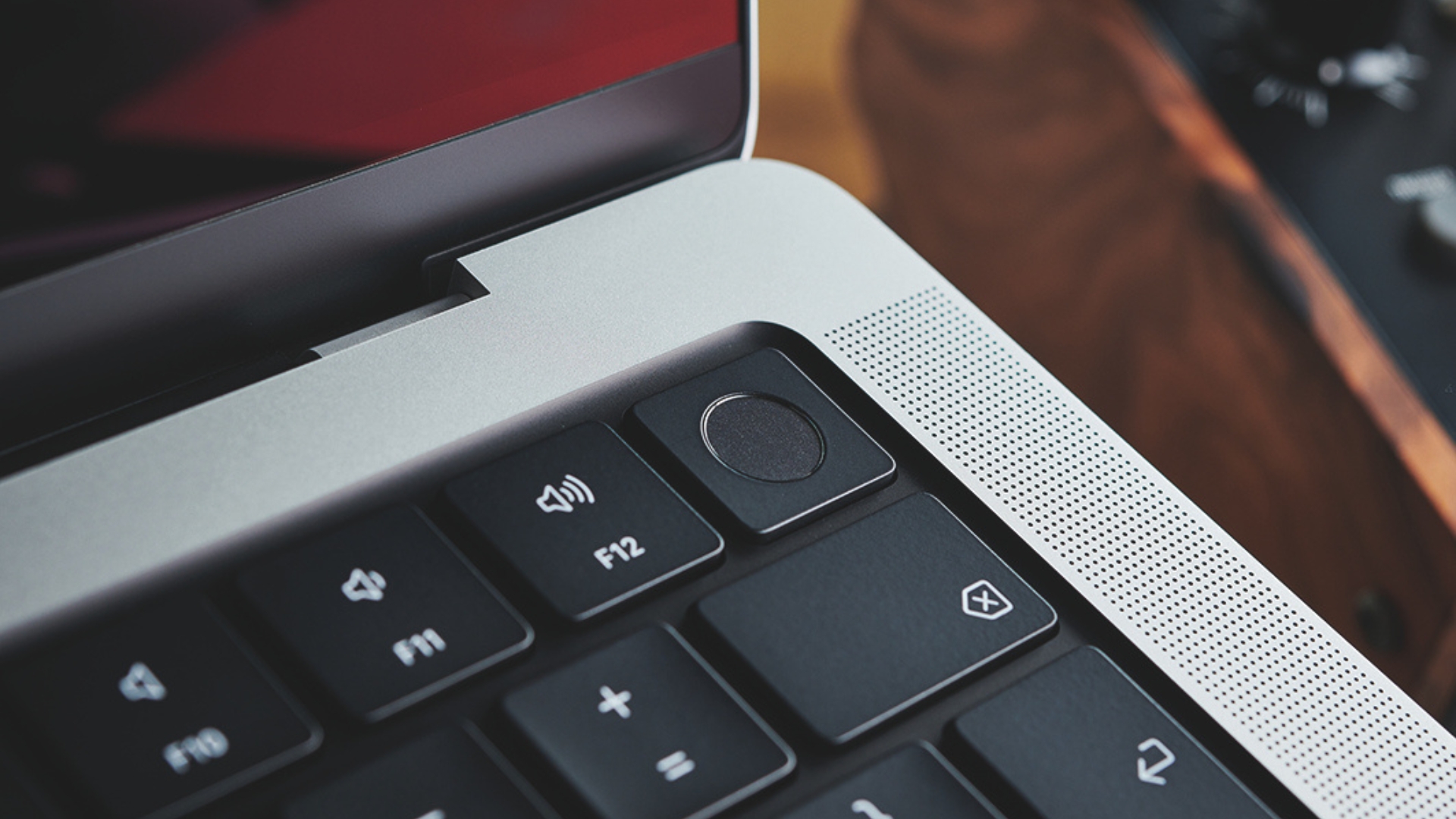
- ASIO: A driver type used on Windows to achieve low-latency performance.
- Audio interface: Hardware that lets you input microphones and instruments into your laptop and send the sound to studio headphones or studio monitors.
- Bounce: A term used to describe exporting your audio out of your DAW, or consolidating virtual instruments and effects in your DAW to preserve processing speed.
- Buffer size: A setting that controls how much audio data your system processes. Ideally you want a low buffer for recording and a high one for mixing.
- CPU (Central Processing Unit): The brain of your computer that handles running programs like a DAW and plugins.
- DAW (Digital Audio Workstation): A piece of software used for recording, arranging, editing, and mixing audio.
- GPU (Graphics Processing Unit): More commonly known as a ‘graphics card’, this component controls the video aspects of a laptop.
- Latency: The delay between you playing your instrument and hearing the sound come out of your speakers. Lower latency is required for recording good performances.
- Overclocking: A way to extract more performance from a CPU by pushing it harder. Can be useful if you have an older laptop.
- Plugin: A software instrument or effect that you use in your DAW.
- RAM (Random Access Memory): Temporary storage used by your laptop for improved performance. A key factor for fast music production.
- Sample library: A collection of recorded sounds to be used in your DAW either by placing direct or virtual instruments.
- Sample rate: How many times per second your recorded audio is played back, with higher sample rates using more processing power.
- SSD (Solid State Drive): A very fast type of hard drive that uses circuits to store data. Essential for music production.
- VST (Virtual Studio Technology): A plugin type that allows virtual instruments to run inside software, created by Steinberg.
How we test
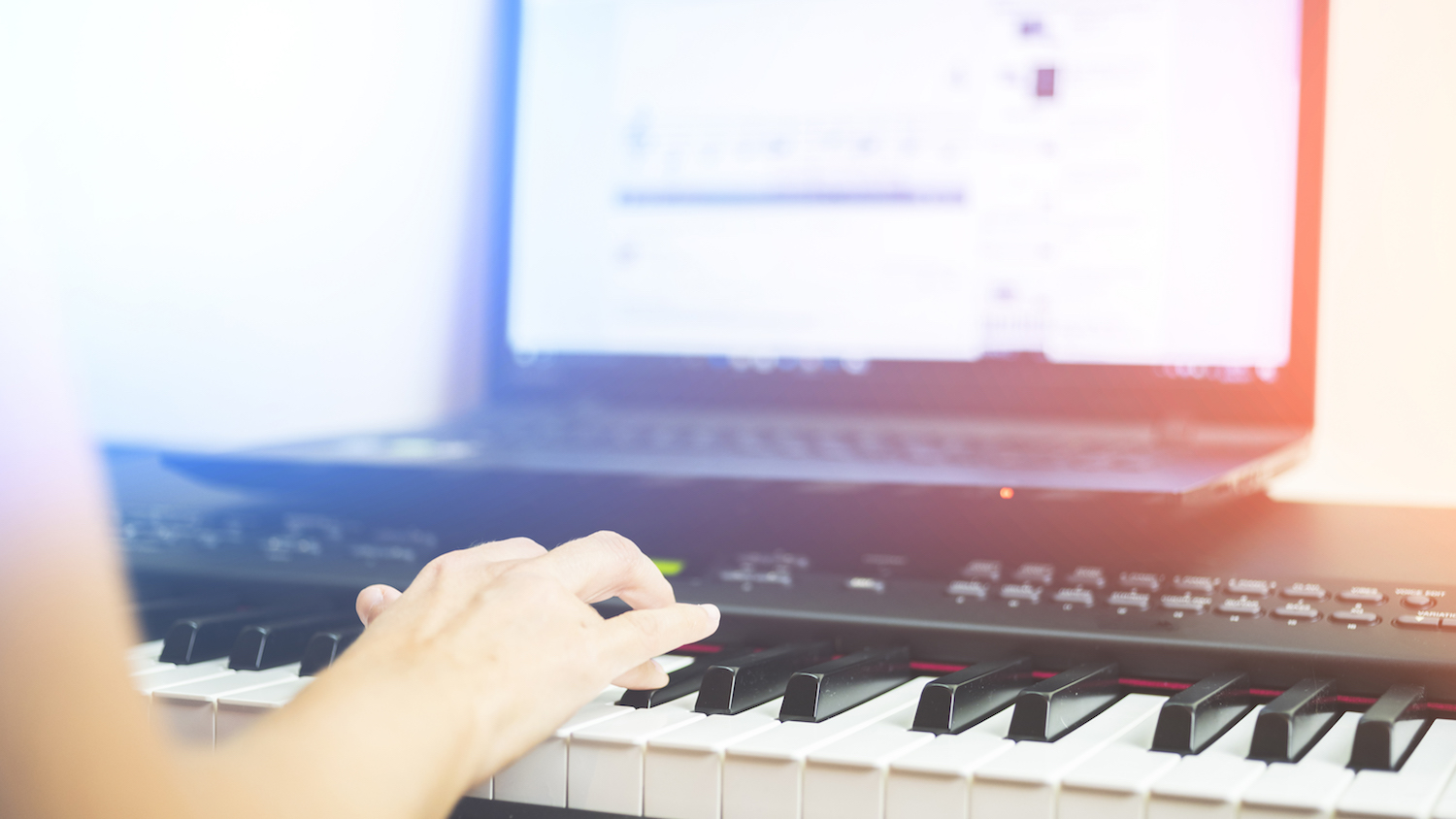
The criteria for testing a budget laptop for music production differs slightly to how we’d test higher-spec machines. At the entry-level end of the spectrum, small tweaks to a laptop’s internal spec can have a huge impact on its ability to perform. Rather than becoming a jack of all production trades, budget laptops tend to be better chosen when they have an end goal in sight.
For example, if your setup involves using lots of loops and samples, then the speed at which the laptop can grab them from your external storage will be paramount. For users with lots of MIDI tracks in their compositions, CPU is king. Using any DAW, we are quickly able to build template sessions which test a variety of real world situations, and from there can assess the suitability of a machine for a particular user group.
With it being a laptop, there are other factors which may come into a buying decision, so we look at these too. Things like battery life, and screen viewing angles or brightness levels, are all easy to test so we take those into consideration when making our recommendations. We also stress test all the laptops for music production we review, so we can ensure that they're right for the job.
Find out more about how we test music gear and services at MusicRadar.
Related buyer's guides
- Stay home with the best PCs for music production
- Check out our guide to the best budget PCs for music production
- Best phones for musicians: top smartphones for music production
- The best computer monitors for music production: DAW-friendly displays
- The best microphones for recording instruments, vocals and podcasts
- Best mouse for music production: mice, trackpads and trackballs
Want all the hottest music and gear news, reviews, deals, features and more, direct to your inbox? Sign up here.

Matt is a Junior Deals Writer here at MusicRadar. He regularly tests and reviews music gear with a focus on audio interfaces, studio headphones, studio monitors, and pretty much anything else recording-related. Matt worked in music retail for 5 years at Dawsons Music and Northwest Guitars and has written for various music sites, including Guitar World, Guitar Player, Guitar.com, Ultimate Guitar, and Thomann’s t.blog. A regularly gigging guitarist with over 20 years of experience playing live and producing bands, he's also an alumnus of Spirit Studios, where he studied studio engineering and music production. When not writing for MusicRadar, you'll find him making a racket with northern noise punks Never Better.
